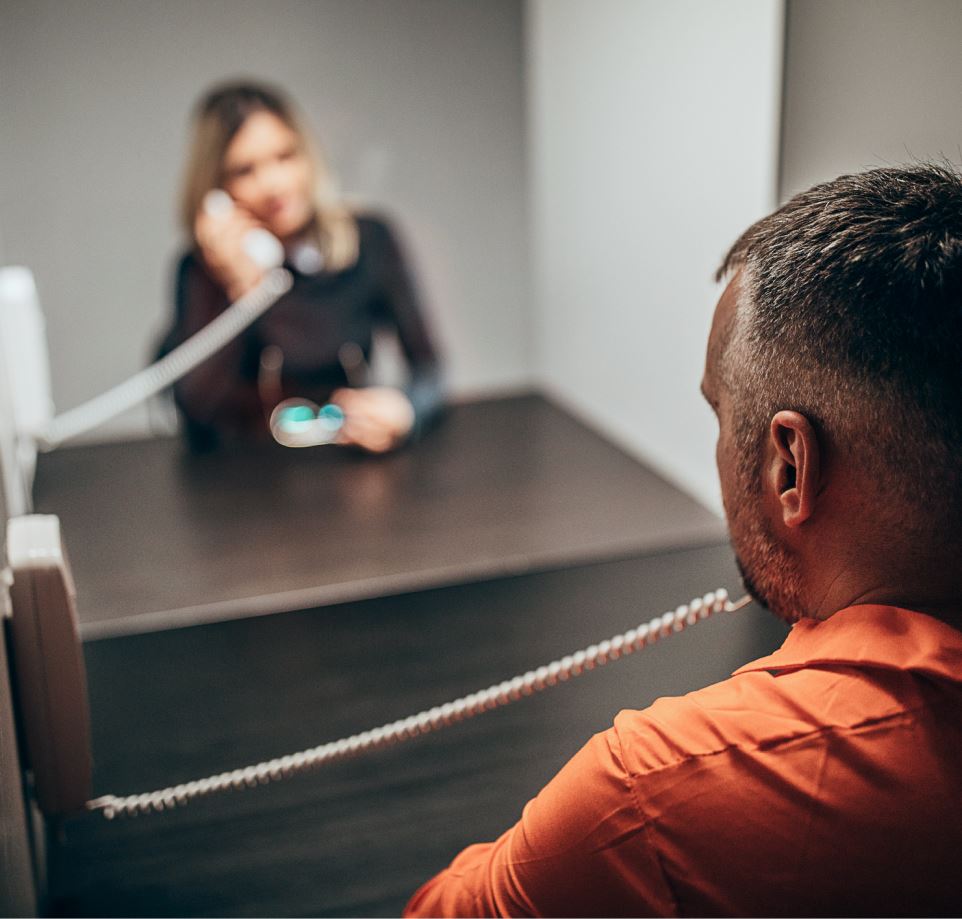
Understanding Bail & Bail Bonds in Southern California
You’ve just received the phone call no one ever wants to get. Your loved one has been arrested. Your head is filled with questions: “How did this happen?” “What have they done?” And, most importantly, “How can I help them?” You may know very little about the criminal justice system, and you might have no idea how to post bail in Southern California.
The following guide can help you navigate this ordeal quickly and calmly.
What Is Bail?
Bail is a financial arrangement that allows a person who has been arrested to be released from custody while awaiting trial on criminal charges. The purpose of bail is to ensure that the defendant appears at all required court appearances. The amount of bail is set during a bail hearing by a judge and can vary depending on several factors, including the severity of the alleged offense, the defendant's criminal history, and their perceived flight risk. In California, the bail process works as follows:
Setting Bail
After an arrest, a defendant may be taken to a police station, where bail is set based on a schedule that varies by county. More serious charges typically result in higher bail amounts. For major crimes or in cases involving defendants with significant flight risk, a court hearing may be necessary to set bail.
Paying Bail
Bail can be paid in several ways:
- Cash Bail: The full bail amount is paid in cash or sometimes by cashier's check.
- Bail Bond: Most people use a bail bond, which involves a bail bond agent. The defendant or a representative pays a non-refundable fee (typically 10% of the full bail amount) to the agent, who then assures the court that they will pay the full bail if the defendant fails to appear.
- Property Bond: In some cases, individuals can use property (like a home) as collateral for the bail amount.
Conditions of Release
Being released on bail often comes with conditions, such as restrictions on travel, requirements to stay away from certain people, or regular check-ins with authorities. If a defendant fails to appear in court, the bail is forfeited. In the case of a bail bond, the bond agency may seek reimbursement from the defendant or take action to bring the defendant to court.
Return of Bail
If the defendant complies with all court requirements and appears at all necessary hearings, the bail amount (or property) is typically returned at the end of the legal process, minus any administrative fees for cash bonds. The 10% fee paid for a bail bond is not returned as it is the fee for the bond service.
What If I Can’t Afford to Post Bail?
Posting bail can be expensive and is often more than the average person or family can afford. If you are unable to put up the money necessary to have your loved one released from prison, you’ll want to reach out to a bail bondsman. A bail bondsman will post the bail on your behalf. Generally, you will pay about 10% of the bail amount to secure a bail bond. Depending on the amount of the bail, you may be asked to provide collateral in the form of property to minimize the bail bondsman’s financial risk.
After the posting of a bond with a licensed bail bondsman, the majority of defendants can be released from jail within a few hours if all conditions have been satisfied, including the payment of fees and the submission of paperwork.
The Role of a Bail Bondsman
A Southern California bail bondsman serves as a surety, pledging to pay the full bail amount if the defendant fails to appear in court. This role is crucial for those who cannot afford to post the full bail amount on their own. The bondsman also provides guidance on the bail process and assists with the necessary paperwork to ensure a swift release from jail.
A Step-by-Step Look at the Bail Bond Process in Southern California
- Arrest: The process begins with the arrest of the defendant.
- Setting Bail: A judge determines the bail amount based on various factors, including the severity of the charges.
- Contacting Dan’s Bail Bonds: If the defendant cannot afford the full bail amount, they can reach out to us at (888) 773-8037 for immediate assistance.
- Bail Bond Application: We’ll gather the necessary information from the defendant and their co-signer to complete the bail bond application.
- Posting Bail: Once approved, we post the bail bond with the court, allowing the defendant’s release.
- Court Appearances: The defendant must attend all scheduled court appearances to avoid forfeiture of the bail bond.
Dan was featured on KTLA 5 Los Angeles News, where he provides an in-depth explanation of how bail bonds work. Click here to watch the video!
Why You Need to Act Quickly
While some may be tempted to let their loved one sit in jail for a few days to “teach them a lesson,” this could only make things worse. When someone is arrested, they will be charged with a specific crime at the time of the arrest. However, as time progresses, the facts of the case may change and the individual may be charged with more (or different) crimes.
Let’s look at a specific example of where this could be a problem.
Imagine that your loved one was arrested for DUI and hitting a pedestrian. The pedestrian was transported to the hospital in stable condition. Unfortunately, three days later, the pedestrian experienced complications from the accident and passed away. Your loved one would no longer be accused of simple DUI, but rather of DUI with vehicular manslaughter.
Since bail is dependent on the severity of the crime, not posting bail immediately could lead to higher amounts (if bail is set at all).
Deciding Whether To Secure a Bail Bond
Bail bonds can be a helpful way to get out of jail while waiting for your case to go to trial, but make sure you understand all the risks before deciding to move forward.
If you skip bail in California, you risk significant financial and legal consequences. Upon posting bail, a defendant must adhere to all conditions set by the court. Failure to comply, such as missing court appearances or engaging in illegal activities, can lead to the forfeiture of the bail amount and potential re-arrest. This could result in additional financial liabilities and increase the likelihood of returning to jail. It's crucial to meet all bail conditions to avoid jeopardizing your finances and freedom.
If you fail to adhere to the terms of your bond, you could find yourself in more trouble than you started with. Additionally, you’ll still have to repay the bail bondsman even if you are found innocent—so always make sure you understand all of the rules involved before making your decision.
Fast, Discreet Bail Help in Southern California
At Dan’s Bail Bonds, we understand the stress and confusion that can accompany an arrest. With locations in Los Angeles, Rancho Cucamonga, Banning, and Van Nuys, we are familiar with the specific nuances of the California bail bond system and are prepared to support and navigate our clients through this challenging time. We serve all Southern California jails and detention centers located across Los Angeles County, Riverside County, San Bernardino County, and Orange County.
We are here to provide the help you need 24/7.


Bail in Southern California: What to Expect
Bail can be overwhelming. Dan is here to help. Here's a step-by-step guide so you know what to expect once you reach out to him.
-
Contact Dan
The first step is to reach out to Dan, who is available 24/7. He’ll gather the necessary information about your situation to guide you through the process and what steps to take.
-
Bail Determination
The court will determine the bail amount based on the charges and other factors. Dan will explain what this means, review your options, and help you decide whether to post bail.
-
Posting Bail
Dan will help you post bail by securing a bail bond, which typically costs about 10% of the full bail amount. He will work quickly and discreetly to bail you or your loved one out.
-
Release & Follow-Up
Once bail is posted, your loved one will be released from custody. Dan will follow up and ensure you understand the next steps, including court appearances and legal obligations.

"I’m personal, professional, and discreet. When you call, you talk directly to me—never a commission-driven agent. I’ll give you honest advice, and sometimes waiting to bail can save you thousands. With 23 years of experience and genuine care, I make a real difference.
- Dan Nesser
What Sets Dan's Bail Bonds Apart
We make bail easier for you and your loved ones.
-
Direct Access to Dan, 24/7
Dan is ready to help any time, day or night. When you call, you’ll speak directly to him and receive immediate assistance.
-
Personal & Discreet
Dan ensures your privacy with his personal, confidential service. Discretion is prioritized throughout the bail bond process.
-
Highly Experienced
With 23 years of experience, Dan is trusted in the California bail bonds industry. His expertise stands out in every case.
-
Convenient, Mobile ServiceThere's no need to come to one of our offices. Our 24-hour mobile bail bond services and payment options make posting bail easy!
-
Quick & Reliable Information
Timing is critical when it comes to bail bonds. Dan delivers fast, accurate insight to help you make informed decisions.
-
Satisfaction Guarantee
Dan is committed to exceptional service with a 100% satisfaction guarantee. Your complete satisfaction is his top priority.

What Our Clients Are Saying
Dan’s personal touch and dedication shine through in every testimonial.
-
“I humbly say all this folks because Dan helped a cousin of mine in deep trouble and made us feel like we were a friend and a family member with his personal touch of empathy and assistance. I can't thank you enough, Dan Nesser.”- Michael C.
-
“He's such a great person, he will not take your money, and he's there to help you.”- Amanda F.
-
“Dan has been amazing!! He was the only person who answered my call and calmed me down. He is a professional and caring person, and he genuinely cares and gives the best advice.”- Maria A.
-
“I heard of Dan by word of mouth. He was very helpful and professional in this unpleasant time. Hopefully, you will never need his services. But, if you do, I would recommend contacting him.”- Anne V.
-
“Dan is very professional and reliable. He went above and beyond to explain the bond process and got the job efficiently. Highly recommend Dan's Bail Bonds for your bail needs.”- Charles K.
-
“First-rate responsiveness and communication. He helped me understand the bond process and got the job done quickly and efficiently. Highly recommended. Dan keep up the great work and thanks for being there when you were needed.”- Lolik L.
-
“I highly recommend Dan's service. He is very professional and a good listener. He also worked with me to solve a serious problem and did not just treat me like a dollar sign. I would be happy to use Dan in the future.”- Erik L.
-
“Thank you, Dan. Such an awesome person in general, so helpful, and always gives the straight information that nobody else will. I appreciate you and what you do for families.”- Ashley R.
-
Bail Bond FAQs Answers to Your Bail QuestionsHave questions about bail bonds? Our FAQ section provides clear answers to the most frequently asked questions about bail in California, helping you feel more informed and confident about your choices.
-
Dan's Bail Blogs Bail Bond Insights & AdviceStay informed with our latest blog posts, which offer everything from expert advice on bail to bail bond industry updates, plus helpful tips for navigating the California criminal justice system.
-
Areas We Serve Bail Bond Services in CaliforniaDan is here to assist you throughout Southern California. Explore the specific areas we serve to find out how we can provide the support you need during this complex and challenging time.






